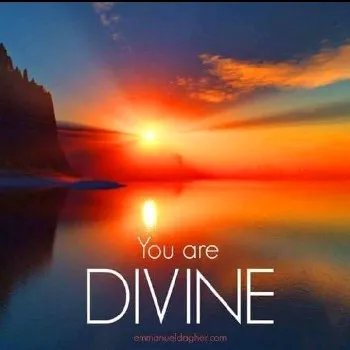Humans and Cosmos
Living organisms, including the human body, have intricate connections with the Earth and its ecosystems. From the air we breathe to the water we drink and the nutrients we consume, our bodies are deeply intertwined with the natural environment. Additionally, our bodies have evolved in response to Earth's conditions, such as gravity, atmospheric composition, and climate patterns.
Moreover, humans, like all organisms, are part of complex ecological systems where interactions with other living organisms and the physical environment shape our health and well-being. For instance, the food we eat comes from plants and animals that depend on soil, water, and sunlight for their growth. Our activities, such as agriculture, industry, and urbanization, also impact the Earth's ecosystems and can have far-reaching consequences for biodiversity, climate, and environmental sustainability.
Recognizing and understanding these connections is crucial for promoting the health of both ecosystems and human populations, as our well-being ultimately depends on the health of the planet.
The connection between celestial bodies like the sun, stars, and human destiny has been a subject of fascination for centuries across different cultures and belief systems. While some people believe in astrological interpretations that suggest a link between celestial positions and human personality traits or life events, the scientific consensus does not support these claims. Astronomical bodies like the sun and stars play crucial roles in sustaining life on Earth through processes like photosynthesis and stellar nucleosynthesis, but their positions or movements do not determine individual destinies in a scientifically measurable way. However, the study of astronomy and the wonder it inspires can certainly influence human perspectives and philosophies about our place in the universe.
The relationship between the moon, the Earth, and the human body is multifaceted and often explored in various cultural, spiritual, and scientific contexts. While some cultural beliefs suggest connections between lunar phases and human behavior or physiology, scientific evidence for such direct influences is limited. However, the moon does exert gravitational forces on Earth, which affect phenomena like tides. Some research suggests that subtle lunar gravitational effects might influence biological rhythms in certain organisms, but the extent of these effects on human biology remains a topic of ongoing study and debate.
The connection between the menstrual cycle and the lunar cycle is often noted anecdotally or in cultural beliefs, but scientifically, there isn't strong evidence to support a direct correlation. While both cycles roughly last around a month, the menstrual cycle is primarily governed by hormonal changes in the body, whereas the lunar cycle is determined by the moon's orbit around the Earth. However, some people may find that their menstrual cycles sync up with lunar phases, but this is not a universal phenomenon and lacks robust scientific backing.
Moreover, humans, like all organisms, are part of complex ecological systems where interactions with other living organisms and the physical environment shape our health and well-being. For instance, the food we eat comes from plants and animals that depend on soil, water, and sunlight for their growth. Our activities, such as agriculture, industry, and urbanization, also impact the Earth's ecosystems and can have far-reaching consequences for biodiversity, climate, and environmental sustainability.
Recognizing and understanding these connections is crucial for promoting the health of both ecosystems and human populations, as our well-being ultimately depends on the health of the planet.
The connection between celestial bodies like the sun, stars, and human destiny has been a subject of fascination for centuries across different cultures and belief systems. While some people believe in astrological interpretations that suggest a link between celestial positions and human personality traits or life events, the scientific consensus does not support these claims. Astronomical bodies like the sun and stars play crucial roles in sustaining life on Earth through processes like photosynthesis and stellar nucleosynthesis, but their positions or movements do not determine individual destinies in a scientifically measurable way. However, the study of astronomy and the wonder it inspires can certainly influence human perspectives and philosophies about our place in the universe.
The relationship between the moon, the Earth, and the human body is multifaceted and often explored in various cultural, spiritual, and scientific contexts. While some cultural beliefs suggest connections between lunar phases and human behavior or physiology, scientific evidence for such direct influences is limited. However, the moon does exert gravitational forces on Earth, which affect phenomena like tides. Some research suggests that subtle lunar gravitational effects might influence biological rhythms in certain organisms, but the extent of these effects on human biology remains a topic of ongoing study and debate.
The connection between the menstrual cycle and the lunar cycle is often noted anecdotally or in cultural beliefs, but scientifically, there isn't strong evidence to support a direct correlation. While both cycles roughly last around a month, the menstrual cycle is primarily governed by hormonal changes in the body, whereas the lunar cycle is determined by the moon's orbit around the Earth. However, some people may find that their menstrual cycles sync up with lunar phases, but this is not a universal phenomenon and lacks robust scientific backing.




